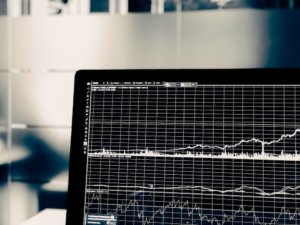Former Deutsche Bank traders seek reversal of LIBOR manipulation convictions
Matthew Connolly and Gavin Campbell Black insist that they committed no crime.

Nearly six months after former Deutsche Bank traders Matthew Connolly and Gavin Campbell Black made it clear that they will appeal from their convictions of LIBOR manipulation, they have filed their briefs with the Second Circuit Court of Appeals.
The documents, submitted on May 5, 2020, and seen by FinanceFeeds, assert that the Government failed to prove that Connolly and Black committed any crime. The Government charged the ex-traders with conspiracy to commit wire fraud and bank fraud along with wire fraud, alleging that they caused Deutsche Bank AG to make fraudulent USD LIBOR submissions to the British Bankers’ Association (BBA) by requesting that DB’s USD LIBOR submitters consider the Bank’s derivatives positions when formulating the Bank’s LIBOR submissions.
According to Black and Connolly, the Government failed to offer any evidence that the BBA’s rules governing LIBOR—the only rules governing LIBOR—were violated, and therefore, Connolly’s and Black’s counts of conviction should be reversed.
The traders note that LIBOR was governed solely by the BBA, a private trade association. DB was one of sixteen panel banks that submitted to the BBA each day USD LIBOR estimates for various tenors, ranging from overnight to one year.
The BBA asked the Panel Banks to submit the rate at which the bank could borrow interbank funds in a reasonable market size. The trial evidence clearly established that LIBOR submissions were estimates not based on actual cash transactions and that there was a reasonable range of rates that reflected a Panel Bank’s estimated cost of interbank borrowing on a given day.
Connolly argues that the evidence at trial established that DB’s USD LIBOR submitters always submitted a rate from within a reasonable range and that Connolly never requested that DB submit a rate outside of the reasonable range of rates. According to him, the Government also failed to offer any evidence that the alleged false statements – DB’s LIBOR submissions- were material to the counterparties. The evidence was also wholly insufficient to show that Connolly intended to defraud anyone—not the BBA or any counterparty.
The evidence, Connolly says, showed that he (neither a derivatives trader nor a LIBOR submitter, who sat in New York, not London where the LIBOR submissions were made and the LIBOR fix was set) believed that LIBOR submissions could be made within a reasonable range of rates.
He adds that the case against him did nothing more than show that in three instances spanning a three-year period, he made directional requests, based on other people’s trade positions, for DB’s LIBOR submitters to consider in their discretionary formulation of certain LIBOR submissions, whose falsity the Government did not prove.
Connolly concludes that because the Government failed to introduce sufficient evidence to establish the elements of the counts of conviction, the District Court erred in denying Connolly’s motion for a judgment of acquittal.
Black argues that the record reflects that he at all times acted in accordance with the BBA’s rules, the training he received at Deutsche Bank, and in good faith. Therefore, he says, his conviction should be reversed for insufficient evidence and because it violates due process.
Black traded LIBOR-based derivatives for nearly his entire career at Deutsche Bank. At no time did he have access to the system that made the bank’s LIBOR submissions, nor was he ever responsible for that function, he says.
Deutsche Bank gave that responsibility to Government cooperators James King and Michael Curtler, both of whom were cash traders who also traded LIBOR-based derivatives. Black’s alleged criminal conduct was openly sharing his derivatives trading positions with King and Curtler and asking them to submit higher or lower rates based on those positions, Black explains. No evidence was presented that Black requested that Deutsche Bank submit a rate outside the permissible range or that Deutsche Bank ever submitted such a rate. As a result, there was no evidence that the BBA’s LIBOR submission rules were violated.
Hence, Connolly and Black ask for their convictions to be reversed.









